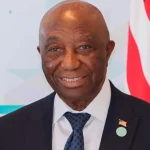Two years after the Nigerian Communications Commission (NCC) issued Mobile Virtual Network Operator (MVNO) licenses, most operators are yet to commence full rollout. Despite initial optimism, the sector faces operational and financial bottlenecks slowing progress.
Industry analysts attribute the sluggish rollout to the tiered MVNO licensing framework, which separates operators based on their level of network infrastructure and control.
Financial and Operational Challenges
According to telecom analyst Chijioke Ajuzie, lower-tier MVNOs, which depend heavily on Mobile Network Operators (MNOs) for connectivity, struggle with limited control over pricing and quality of service.
On the other hand, higher-tier MVNOs must invest heavily in infrastructure, such as core networks, billing platforms, and operational systems, before they can compete effectively.
“Smaller players, especially those in lower tiers, will face significant financial pressure since they are expected to build part of their own infrastructure,” Ajuzie explained.
Finding Niche Opportunities, Not Fighting Giants
Experts agree that Nigerian MVNOs cannot compete directly with established MNOs like MTN, Airtel, and Globacom on voice and data pricing. Instead, they advise operators to focus on underserved market segments and innovative service models.
Drawing parallels from markets such as South Africa and India, analysts note that successful MVNOs often target niche segments such as:
- Youth and digital-first users
- Migrant workers and rural populations
- Small and medium-sized enterprises (SMEs)
- Fintech-driven mobile services
In India, for example, some MVNOs have thrived by integrating mobile connectivity with microfinance and payment solutions, creating new value chains beyond traditional telecom offerings.
A Peek into Vitel Wireless — Nigeria’s First MVNO Launch
Defying industry expectations, Vitel Wireless, the first MVNO to launch in Nigeria, is betting on data and voice services as its core offerings.
Leveraging MTN’s network infrastructure, Vitel offers both physical SIMs and eSIMs, positioning itself as a reliable and affordable alternative for small businesses.
At the official launch, Kenneth Nwabueze, Executive Chairman of Vitel Wireless, described the network as a growth engine for Nigerian enterprises, not just a communications provider.
“We understand the challenges small and large enterprises face in managing communication costs and team coordination,” Nwabueze said. “Our network provides an affordable solution that combines smart technology with security and scalability.”
The Road Ahead for Nigeria’s MVNOs
While the MVNO rollout in Nigeria remains slow, experts believe opportunities still exist for operators who can tailor their services to specific user needs and emerging digital ecosystems.
With more entrants expected in 2026 and beyond, the success of MVNOs in Nigeria will depend on innovation, strategic partnerships, and financial sustainability rather than traditional competition with MNOs.











